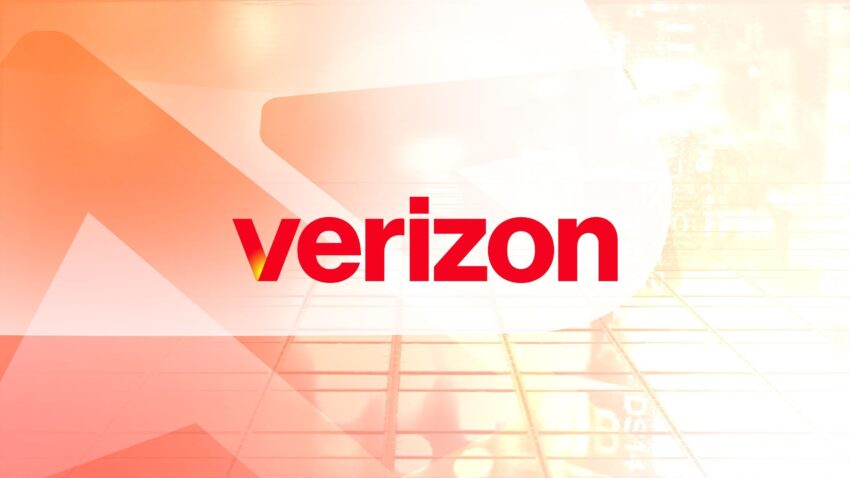
verizon is using ai to win over Verizon is implementing artificial intelligence strategies to attract customers from its competitors, AT&T and T-Mobile, amid a highly competitive telecommunications landscape.
verizon is using ai to win over
Overview of the Competitive Landscape
In the current telecommunications market, Verizon, AT&T, and T-Mobile are engaged in a fierce battle for subscribers. Each carrier is vying to attract customers from the others by offering enticing deals and competitive pricing. This competition has intensified as all three companies seek to differentiate themselves in a saturated market.
Verizon, in particular, has been facing challenges in maintaining its subscriber base. Recent reports indicate that the company has experienced a decline in its customer numbers, making it imperative for Verizon to adopt innovative strategies to regain its footing. The introduction of artificial intelligence (AI) into its marketing and customer engagement efforts is one such strategy aimed at reversing this trend.
The Role of AI in Verizon’s Strategy
Verizon’s use of AI is multifaceted, focusing on enhancing customer experience, personalizing offers, and streamlining operations. By leveraging AI technologies, Verizon aims to create a more engaging and tailored experience for potential customers, which could help in converting them from competitors.
Enhancing Customer Experience
One of the primary applications of AI in Verizon’s strategy is improving customer experience. AI-driven chatbots and virtual assistants can provide immediate responses to customer inquiries, reducing wait times and enhancing satisfaction. This technology allows Verizon to handle a larger volume of customer interactions without the need for proportional increases in staffing.
Furthermore, AI can analyze customer data to identify preferences and behaviors, enabling Verizon to offer personalized recommendations. For instance, if a potential customer frequently browses plans that include unlimited data, Verizon can proactively present tailored offers that highlight the benefits of such plans.
Personalized Offers and Promotions
In an effort to attract customers from AT&T and T-Mobile, Verizon is utilizing AI to craft personalized offers that resonate with individual consumer needs. By analyzing data from various sources, including social media activity, browsing history, and previous interactions, Verizon can create targeted promotions that are more likely to convert potential customers.
For example, if a user has shown interest in family plans, Verizon can deliver customized promotions that emphasize the advantages of its family offerings, such as discounts for multiple lines or additional features at no extra cost. This level of personalization is designed to make Verizon’s offers more appealing compared to those of its competitors.
Streamlining Operations
AI is not only enhancing customer engagement but also streamlining Verizon’s internal operations. By automating routine tasks and optimizing resource allocation, Verizon can operate more efficiently and reduce costs. This operational efficiency can translate into better pricing for consumers, allowing Verizon to offer competitive rates without compromising on service quality.
Moreover, AI can assist in predicting market trends and customer preferences, enabling Verizon to adapt its strategies proactively. By staying ahead of the curve, Verizon can position itself as a leader in the telecommunications industry, attracting customers who are looking for reliable and innovative service providers.
Implications for the Telecommunications Market
The deployment of AI by Verizon has broader implications for the telecommunications market. As Verizon enhances its offerings through AI, it may compel AT&T and T-Mobile to follow suit, leading to a technological arms race among the carriers. This could result in a more dynamic market where companies continually innovate to attract and retain customers.
Potential Reactions from Competitors
AT&T and T-Mobile are likely to respond to Verizon’s AI initiatives with their own strategies. Both companies have invested in technology and customer experience enhancements in the past, and they may ramp up these efforts in response to Verizon’s moves. This could include developing their own AI-driven solutions or enhancing existing customer service platforms to remain competitive.
For instance, T-Mobile has been known for its customer-centric approach and may leverage AI to further enhance its reputation for superior customer service. AT&T, on the other hand, might focus on integrating AI with its extensive network capabilities to offer unique services that differentiate it from Verizon and T-Mobile.
Consumer Benefits
The competition driven by AI advancements is likely to benefit consumers in several ways. As carriers strive to outdo each other, customers can expect better service, more personalized offers, and potentially lower prices. This competitive environment encourages innovation, which can lead to improved technology and service delivery across the board.
Additionally, consumers may find that their needs are better understood and addressed as companies utilize AI to analyze customer behavior and preferences. This could lead to more relevant marketing efforts and offers that align closely with what customers are seeking in a telecommunications provider.
Challenges and Considerations
While the integration of AI presents numerous opportunities for Verizon, it also comes with challenges. One of the primary concerns is data privacy. As Verizon collects and analyzes customer data to drive its AI initiatives, it must ensure that it adheres to privacy regulations and maintains customer trust. Any missteps in data handling could lead to significant reputational damage and regulatory scrutiny.
Moreover, the reliance on AI technology raises questions about the human element in customer service. While AI can enhance efficiency, it is crucial for Verizon to strike a balance between automation and human interaction. Some customers may prefer speaking with a human representative, especially for complex issues. Therefore, Verizon must ensure that its AI solutions complement rather than replace human customer service agents.
Future Outlook
The future of Verizon’s AI initiatives will likely depend on its ability to adapt to the evolving telecommunications landscape. As technology continues to advance, Verizon must remain agile and responsive to market changes. This includes not only refining its AI strategies but also exploring new technologies that can further enhance customer experience and operational efficiency.
Additionally, Verizon’s success in attracting customers from AT&T and T-Mobile will hinge on its ability to communicate the value of its AI-driven offerings effectively. Clear messaging about how these innovations translate into tangible benefits for consumers will be essential in winning over skeptical customers.
Conclusion
Verizon’s strategic use of artificial intelligence represents a significant shift in its approach to customer acquisition and retention. By enhancing customer experience, personalizing offers, and streamlining operations, Verizon aims to regain its competitive edge in a challenging market. However, the company must navigate challenges related to data privacy and the balance between automation and human interaction. As the telecommunications landscape continues to evolve, Verizon’s ability to adapt and innovate will be critical in attracting customers from its rivals and ensuring long-term success.
Source: Original report
Was this helpful?
Last Modified: October 6, 2025 at 11:09 pm
2 views















